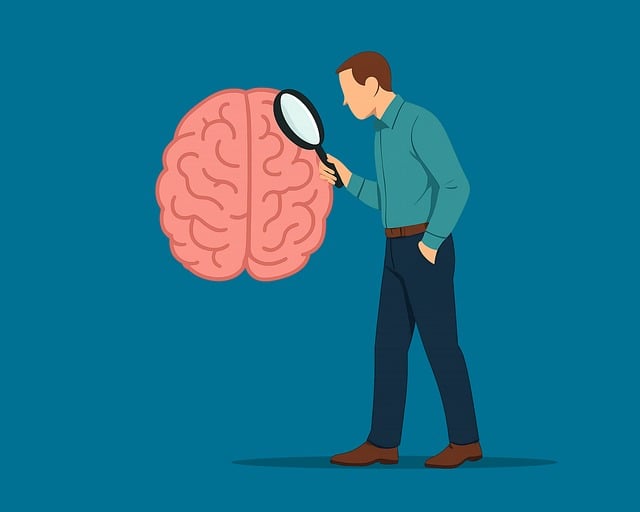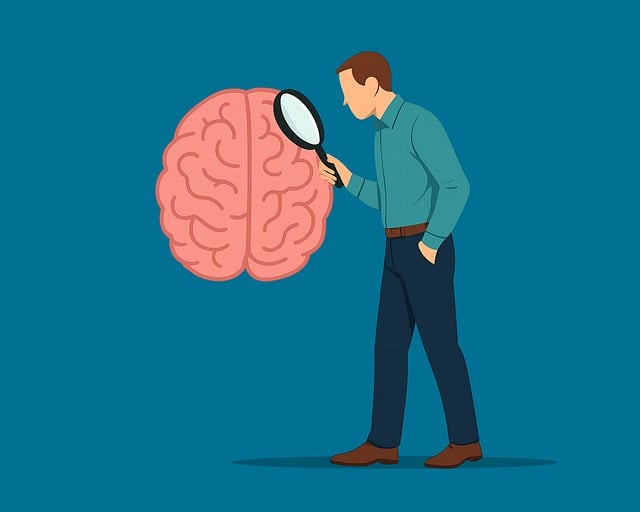Mental wellness self-assessment tools are essential for identifying and addressing individual needs, especially in therapy for children exposed to domestic violence. These assessments provide insights into emotional well-being, promote self-care practices, and facilitate risk management planning. By integrating 'mind over matter' principles, these tools empower individuals with proactive steps towards enhanced mental wellness. Early detection through self-assessment is key in safeguarding children's mental health, especially in mitigating the effects of domestic violence. Specialized therapy approaches, such as play or art therapy, engage children and help build self-esteem, healthy communication skills, and coping mechanisms, fostering safety, expression, and positive interactions with their support systems.
Mental wellness self-assessment tools play a pivotal role in monitoring and addressing the unique challenges faced by children affected by domestic violence. Early detection and prevention are crucial for fostering healthy development, yet existing therapeutic approaches often fall short in catering to this specific population. This article explores the development of tailored self-assessment tools, integrating trauma-informed practices to support children navigating domestic violence. By understanding their role and implementing effective strategies, we can enhance therapy outcomes and promote mental wellness.
- Understanding Mental Wellness Self-Assessment Tools
- – Define self-assessment tools and their role in mental health monitoring.
- – Highlight the importance of early detection and prevention for children's mental wellness.
- Addressing Therapy for Children Affected by Domestic Violence
Understanding Mental Wellness Self-Assessment Tools

Mental wellness self-assessment tools play a pivotal role in identifying and addressing individual mental health needs. These tools are designed to help individuals, particularly those facing challenges such as domestic violence or seeking therapy for children, gain insight into their emotional well-being. By promoting self-care practices, these assessments encourage people to take an active role in managing their mental health. They provide a framework for understanding and assessing various aspects of mental wellness, including emotional regulation, stress management, and coping strategies.
For mental health professionals, integrating risk management planning into these tools is essential. It enables them to offer tailored support, ensuring that individuals receive the appropriate care. Mind over matter principles, which emphasize the power of mindset and self-belief in shaping mental health, are often incorporated into these assessments, promoting resilience and personal growth. This holistic approach ensures that self-assessment tools not only identify potential issues but also empower individuals to take proactive steps towards enhancing their overall mental wellness.
– Define self-assessment tools and their role in mental health monitoring.

Self-assessment tools play a pivotal role in mental health monitoring, offering individuals and communities an accessible way to gauge and track their psychological well-being. These tools empower people to take an active role in understanding their mental state, identifying potential issues early on, and seeking appropriate support. By promoting self-awareness and self-reflection, they serve as valuable resources for both personal growth and professional development.
In the context of therapy for children exposed to domestic violence, self-assessment tools can help normalize discussions about emotional well-being, encouraging resilience and coping strategies. They facilitate risk assessment for mental health professionals by providing insights into clients’ baseline mental wellness, enabling more effective interventions and tailored support. Moreover, these tools contribute to the development of mental wellness coaching programs and self-care practices, fostering a proactive approach to maintaining and enhancing mental health in diverse populations.
– Highlight the importance of early detection and prevention for children's mental wellness.

Early detection and prevention play a pivotal role in ensuring children’s mental wellness. The developing minds of children are particularly vulnerable to stressors such as domestic violence, which can have long-lasting impacts on their emotional well-being. Implementing effective self-assessment tools can help identify potential issues at an early stage, enabling timely intervention through therapy for children exposed to traumatic events. By fostering resilience building and emotional healing processes, these tools empower both children and their caregivers to navigate challenges proactively.
Promoting emotional wellbeing involves a multi-faceted approach that includes emotional healing processes designed to support children in processing and overcoming adversity. Through the integration of specialized techniques, self-assessment tools can contribute significantly to overall mental wellness by enhancing coping mechanisms and fostering positive mental health outcomes. By addressing mental health issues early, communities can break cycles of distress and create safer, more supportive environments for children to thrive.
Addressing Therapy for Children Affected by Domestic Violence

Children who have been exposed to domestic violence often face unique challenges that can significantly impact their mental wellness. Accessing appropriate therapy is crucial in helping them process and overcome these traumatic experiences. Many traditional therapeutic approaches may not be as effective for young individuals, so specialized strategies are required. For instance, play therapy or art therapy can be powerful tools to engage children, allowing them to express their emotions and memories in a safe and creative manner.
Developing self-esteem and healthy communication strategies is essential within these therapeutic settings. Healthcare providers and therapists can play a vital role in teaching children coping mechanisms and enhancing their problem-solving abilities. By implementing effective communication techniques, therapy sessions can foster a sense of safety, encourage expression, and promote positive interactions between the child and their caregivers or therapists. This, in turn, supports not only their mental wellness but also facilitates the healing process related to domestic violence exposure.
Mental wellness self-assessment tools play a pivotal role in early detection and prevention of mental health issues, especially among children exposed to domestic violence. By integrating these tools into therapeutic practices, we can facilitate timely interventions and promote healing. Understanding the unique needs of children affected by domestic violence is crucial for developing effective assessment methods that foster their mental wellness and support their overall well-being.














